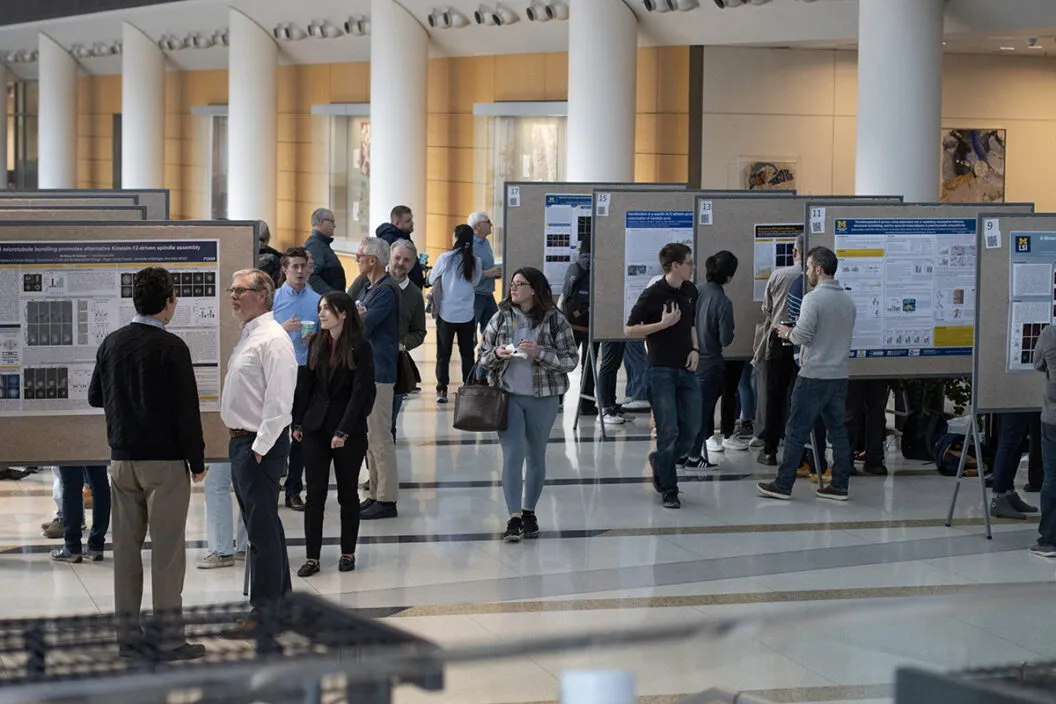2024

Emmanouil Agrafiotis
Biomedical Engineering
Mentor: Brendon Baker
Read Bio
In the U-M Department of Biomedical Engineering, Emmanouil Agrafiotis, Ph.D., plans to identify shared signaling pathways driving myofibroblast activation and cardiac fibrosis post-myocardial infarction using inducible cardiomyocyte apoptosis in human and mouse models, exploring heterocellular communication and fibrotic responses through genetic switches, marker analysis, and single-cell transcriptomics. Agrafiotis received his Ph.D. in biomedical engineering from the Graz University of Technology, Austria.
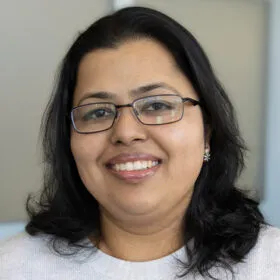
Ritvija Agrawal
Human Genetics
Mentor: Sue Hammoud
Read Bio
In the Medical School’s Department of Human Genetics, Ritvija Agrawal, Ph.D., will investigate the unique mechanisms through which protamine proteins influence sperm chromatin structure and early embryonic development, thereby enhancing our understanding of the biological basis of various types of infertility and embryonic failure. Agrawal received her Ph.D. in molecular, cellular and developmental biology from U-M.
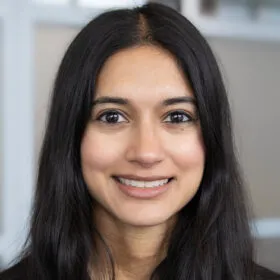
Prarthana Dalal
Molecular and Integrative Physiology
Mentor: Yatrik Shah
Read Bio
In the Medical School’s Department of Molecular and Integrative Physiology, Prarthana Dalal, M.D., Ph.D., will explore how hypoxic stress alters endothelial cell metabolic crosstalk with cancer cells and immune cells in the tumor microenvironment. Dalal completed her M.D./Ph.D. training at Northwestern University, focusing on vascular biology, specifically leukocyte transendothelial migration.
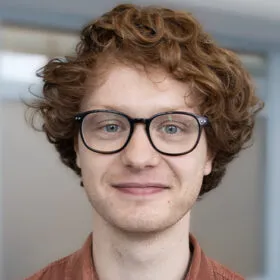
Daniel Duffy
Physics
Mentor: Suraj Shankar
Read Bio
In the College of Literature, Science, and the Arts Department of Physics, Daniel Duffy, Ph.D., will research the mechanisms by which leaves develop their distinctive shapes during growth. Duffy received his Ph.D. in engineering from the University of Cambridge.
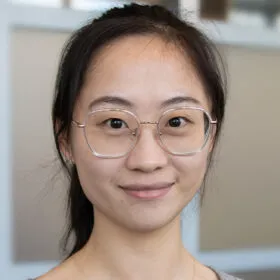
Jiawen Fu
Microbiology
Mentor: Yifan Wang
Read Bio
In the Medical School’s Department of Microbiology and Immunology, Jiawen Fu, Ph.D., will investigate how Toxoplasma gondii delivers its effector proteins to host cells and plans to identify novel parasite proteins that mediate effector protein trafficking. Fu received her Ph.D. from the Harbin Veterinary Research Institute, Chinese Academy of Agricultural Sciences.
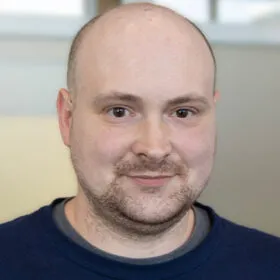
Duncan Kountz
Biological Chemistry
Mentor: Stephen Ragsdale
Read Bio
In the Medical School’s Department of Biological Chemistry, Duncan Kountz, Ph.D., works on metalloenzymes from anaerobic microbes that play key roles in the carbon cycle and climate. Kountz received his Ph.D. in chemical biology from Harvard University.
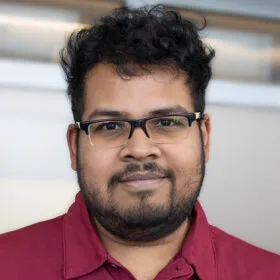
Arpit Kumar Pradhan
Psychology
Mentor: Ada Eban-Rothschild
Read Bio
In the College of Literature, Science, and the Arts Department of Psychology, Arpit Kumar Pradhan, Ph.D., is working to understand the neural mechanisms underlying sound salience processing during sleep using electrophysiological and optical recordings. Pradhan received his Ph.D. in systemic neuroscience from Ludwig Maximilian University of Munich, Germany.

Frederike Sass
Internal Medicine Division of Metabolism, Endocrinology and Diabetes
Mentor: Martin Myers
Read Bio
In the Medical School’s Department of Internal Medicine Division of Metabolism, Endocrinology and Diabetes, Frederike Sass, Ph.D., will extend her previous work in the field of metabolic diseases into the central nervous system (CNS) by researching the mechanisms by which NK2R signaling interacts with leptin action in the CNS. Sass received her Ph.D. in metabolic research from the University of Copenhagen, Denmark.
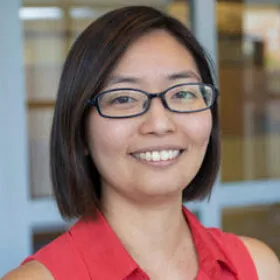
Christabel Tan
Life Sciences Institute
Mentor: Tzumin Lee
Read Bio
In the Life Sciences Institute, Christabel Tan, Ph.D., is working to track and reprogram the epigenomes of closely related neuronal lineages in the fly brain to reveal the detailed genetic and epigenetic mechanisms of neural diversification. Tan received her Ph.D. in cell biology at Duke University.

Hitarthi Vyas
Internal Medicine Division of Hospital Medicine
Mentor: Brian Emmer
Read Bio
In the Medical School’s Department of Internal Medicine Division of Hospital Medicine, Hitarthi Vyas, Ph.D., is focusing on creating the most comprehensive functional map of the Low-Density Lipoprotein Receptor (LDLR) locus using high-throughput CRISPR screens. Additionally, she seeks to develop a synthetic enhancer to improve LDLR activity with the ultimate goal of advancing therapeutic options for treating atherogenic cardiovascular disorders. Vyas received her Ph.D. from Maharaja Sayajirao University of Baroda, where she investigated circadian-regulated microRNAs and their role in the onset and progression of atherosclerosis.

Hasini Weerathunge
Psychiatry
Mentor: Soo-Eun Chang
Read Bio
In the Medical School’s Department of Psychiatry, Hasini Weerathunge, Ph.D., is investigating the application of non-invasive neurostimulation techniques to improve the effectiveness of current behavioral approaches to stuttering treatment. Weerathunge received her Ph.D. in biomedical engineering from Boston University, where her work centered on utilizing auditory and somatosensory motor perturbations of voice and speech to develop neurocomputational models of speech motor control to better understand motor speech disorders.
2023

Christophe-Sebastien Arnold
Microbiology and Immunology
Mentors: Vernon Carruthers , Carole Parent
Read Bio
In a project that spans the Medical School’s Department of Microbiology and Immunology and the Life Sciences Institute, Christophe-Sebastien Arnold, Ph.D., will use metabolomics, high-content imaging and machine learning to understand parasite-host interactions under nutritional stress. Arnold received a Ph.D. in virology, immunology and microbiology from the Université Grenoble-Alpes, France, before coming to U-M.
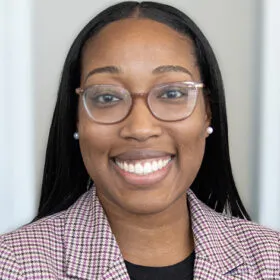
Merci Best
Neurology
Mentor: Henry Paulson
Read Bio
Working in the Medical School’s Department of Neurology, Merci Best, Ph.D., aims to uncover how specific genetic mutations can damage the architecture of the central nervous system and thus promote neurodegeneration. Best received a Ph.D. in pharmacology at the University of Virginia School of Medicine.
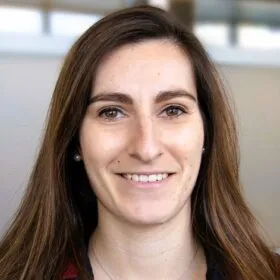
Maurinne Bonnet
Medicinal Chemistry
Mentor: Amanda Garner
Read Bio
Maurinne Bonnet, Ph.D., completed her graduate studies in medicinal chemistry at the Institut de Chimie de Nice, France. Now, in the College of Pharmacy’s Department of Medicinal Chemistry, she plans to develop new approaches to RNA-targeted drug discovery.
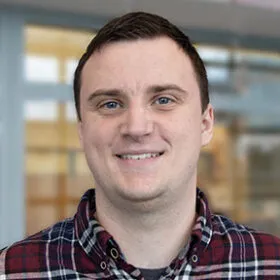
Brian Curtis
Life Sciences Institute
Mentor: David Sherman
Read Bio
In the Life Sciences Institute, Brian Curtis, Ph.D., will apply protein engineering to overcome a bottleneck that hinders scientists’ ability to efficiently develop biologically important natural product analogues. Curtis comes to the LSI from Cornell University, where he received a Ph.D. in chemistry and chemical biology.
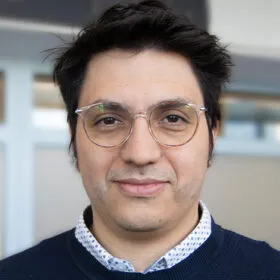
Fabio Andrés Gómez-Cano
Molecular, Cellular, and Developmental Biology
Mentor: Alexandre Marand
Read Bio
Fabio Andrés Gómez-Cano, Ph.D., received a Ph.D. in biochemistry and molecular biology from Michigan State University. He joined the College of Literature, Science, and the Arts Department of Molecular, Cellular, and Developmental Biology, where he intends to unravel the intricate mechanisms through which living organisms respond to stress by studying the co-evolution of cis-regulatory regions and environmental stress.
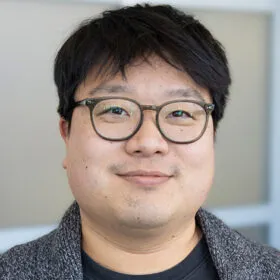
John Han
Ophthalmology and Visual Sciences
Mentor: Jason Miller
Read Bio
In the Medical School’s Department of Ophthalmology and Visual Sciences, John Han, Ph.D., will explore the role of lipid droplets and mitochondrial metabolism in lipoprotein particle formation and secretion in age-related macular degeneration. Han received his Ph.D. in cell biology and regenerative medicine from Thomas Jefferson University in Philadelphia.

Jacob Moran
Biophysics, and Ecology and Evolutionary Biology
Mentors: Luis Zaman , Robert Woods , Suraj Shankar
Read Bio
Working across the College of Literature, Science, and the Arts departments of Biophysics and Ecology and Evolutionary Biology, and the Medical School’s Department of Internal Medicine, Jacob Moran, Ph.D., will investigate how bacterial communities coordinate across different length and time scales to resist antibiotic treatments. Moran comes to U-M from Washington University in St. Louis, where he received a Ph.D. in physics.
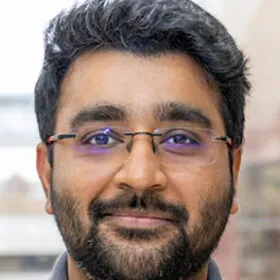
Siva Kumar Natarajan
Pathology
Mentors: Sriram Venneti , Costas Lyssiotis
Read Bio
In the Medical School’s Department of Pathology, Siva Kumar Natarajan, Ph.D., will build on his graduate work by exploring how the crosstalk between tumor cells and immune cells contributes to aggressive forms of brain cancer. Natarajan received his Ph.D. in molecular and cellular pathology from U-M, where he identified metabolic vulnerabilities in pediatric brain cancers to develop new therapies.
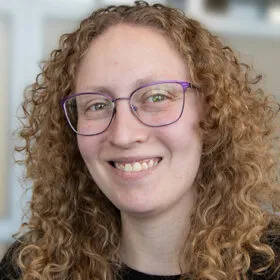
Morgan Pimm
Cell and Developmental Biology
Mentors: Kristen Verhey , Ryoma Ohi
Read Bio
Morgan Pimm, Ph.D., has joined the Medical School’s Department of Cell and Developmental Biology, where she will study how one class of cytoskeletal filaments, known as microtubules, are regulated to promote directed cell migration, which is essential for tissue formation, immune responses and wound healing. Pimm received a Ph.D. in biochemistry and molecular biology from the State University of New York Upstate Medical University.
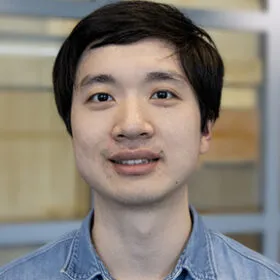
Jingcheng Wang
Life Sciences Institute
Mentor: David Ginsburg
Read Bio
In the Life Sciences Institute, Jingcheng Wang, Ph.D., is characterizing protein receptors that facilitate the movement of specific proteins (cargos) along the secretory pathway to the surface or outside of the cells, with a particular interest in the mechanisms that enable receptors to recognize their corresponding cargos. Before coming to U-M, Wang completed his graduate studies at the University of Texas Southwestern Medical Center.
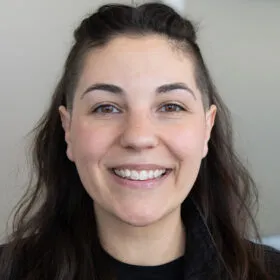
Kristina Weaver
Molecular and Integrative Physiology
Mentors: Scott Pletcher , Megan Killian
Read Bio
In the Medical School’s Department of Molecular and Integrative Physiology, Kristina Weaver, Ph.D., plans to establish new animal models to study how environmental changes, such as touch, can reprogram neural states in the brain and impact aging. Weaver received her Ph.D. in molecular and integrative physiology from U-M.
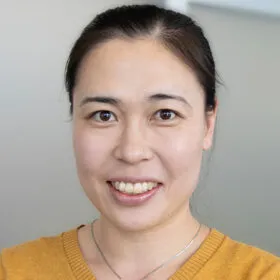
Guolei Zhao
Microbiology and Immunology
Mentor: Teresa O’Meara
Read Bio
In the Medical School’s Department of Microbiology and Immunology, Guolei Zhao, Ph.D., is investigating the mechanisms that drive skin colonization in Candida auris, which can cause life-threatening infections. Prior to joining U-M, Zhao received her Ph.D. in biological sciences from the State University of New York-Buffalo.
2022
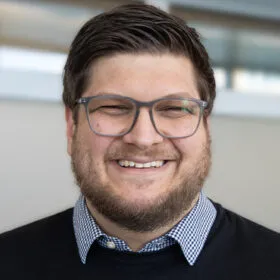
Dominik Awad
Molecular and Integrative Physiology
Mentors: Costas Lyssiotis , Donnele Daley
Read Bio
In the Medical School’s Department of Molecular and Integrative Physiology, Dominik Awad, Ph.D., studies the role of microbiome-derived metabolites and their impact on the pancreatic tumor microenvironment. He received his MSc in Microbiology from the University of Graz, Austria, studying ribosome biogenesis in yeast. Prior to joining the University of Michigan for his postdoctoral studies, Awad earned a Ph.D. from the University of Texas MD Anderson Cancer Center, where his research focused on prostate cancer lipid metabolism.
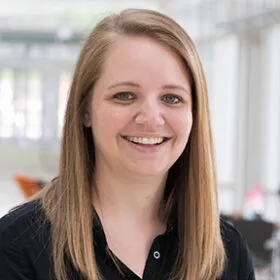
Ashley Calder
Internal Medicine
Mentors: Linda Samuelson , Nataliya Razumilava
Read Bio
In the Medical School’s Department of Internal Medicine, Ashley Calder, Ph.D., studies the signaling mechanisms driving biliary injury and repair. She received her undergraduate education at Utah Valley University, where she earned her B.S. in Biotechnology. Calder completed her graduate training in Biomedical Sciences at the University of Central Florida, where her research investigated the mechanisms of chemosensory signaling in the oral cavity.
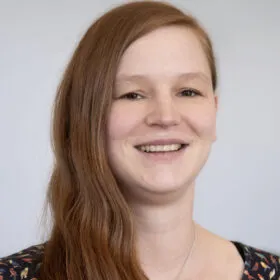
Jutta Diessl
Biological Chemistry
Mentor: Ruma Banerjee
Read Bio
From sugars and lipids to metals and gases, Jutta Diessl, Ph.D., studies cellular biology at the intersection of molecular biology and bioinorganic chemistry. During her graduate studies, Diessl investigated glucolipotoxicity in yeast (M.Sc., University of Graz, Austria) and dysregulated calcium and manganese homeostasis in yeast and flies (Ph.D., Stockholm University, Sweden). In the U-M Medical School’s Department of Biological Chemistry, Diessl now elucidates the crosstalk of hydrogen sulfide and copper metabolism and its impact on mitochondrial bioenergetics and metabolism in mammalian cell culture and mice.
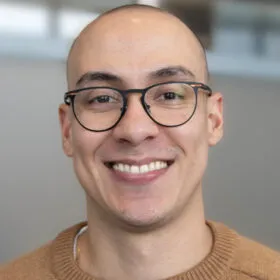
Luis Ortiz-Rodríguez
Chemistry
Mentor: Julie Biteen
Read Bio
In the College of Literature, Science, and the Arts Department of Chemistry, Luis Ortiz-Rodríguez, Ph.D., is developing next-generation single-molecule microscopy methods for measuring subcellular interactions in living microbial cells. Ortiz-Rodríguez comes from Luquillo, Puerto Rico and graduated with his B.S. in biology from University of Puerto Rico-Humacao Campus. He earned a Ph.D. in physical chemistry at Case Western Reserve University in Cleveland, Ohio, where he scrutinized the excited state dynamics and electronic relaxation pathways of thionated heavy-atom-free photosensitizers for photodynamic therapy applications.
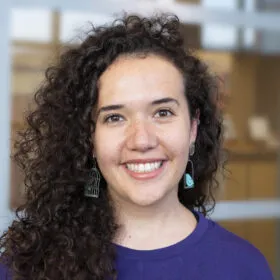
Mónica Rivas Morales
Life Sciences Institute
Mentor: Anna Mapp
Read Bio
In the Life Sciences Institute, Mónica Rivas Morales, Ph.D., focuses on the development and application of allosteric modulators of dynamic proteins in transcription. After earning her B.S. in Chemistry from the University of Central Florida, Rivas completed her graduate studies in Chemistry at the University of Texas at Dallas, developing methods for robust and rapid alkyl radical generation, and their application to 18F-incorporation for the synthesis of positron emission tomography agents.
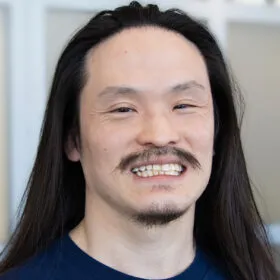
Jason Witek
Radiology
Mentors: John Traynor , Peter Scott
Read Bio
In the Medical School’s Department of Radiology, Jason Witek, Ph.D., is working on the design and development of novel opioid PET radioligands that are agonist/antagonist pairs. After graduating with his B.S. in Chemistry from U-M, he earned a M.Sc. in Chemistry focusing on alkaloid natural product total synthesis at Penn State University. Witek continued his graduate studies at Yonsei University, earning a Ph.D. in Pharmaceutical Sciences focusing on medicinal chemistry and organic synthesis of drug-like molecules.
Alumni
2021
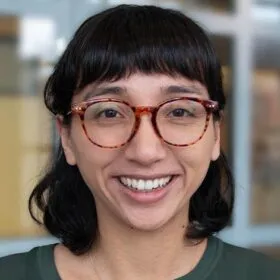
Amanda Erwin
Life Sciences Institute
Mentors: Shyamal Mosalaganti , Sami Barmada
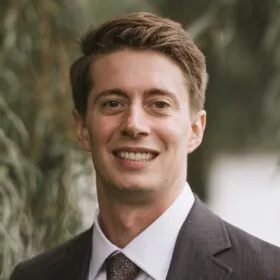
Mike McFadden
Microbiology and Immunology
Mentors: Teresa O’Meara , Mary O’Riordan
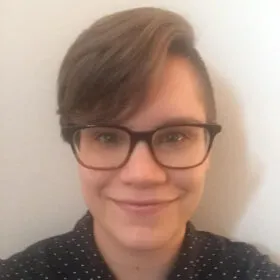
Helen Rich
Microbiology and Immunology
Mentor: Bethany Moore, Nicholas Lukacs
2020
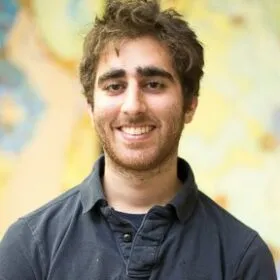
David Hanna
Biological Chemistry
Mentor: Ruma Banerjee

Samantha Hodges
Pharmacology
Mentor: Lori Isom, Jack Parent
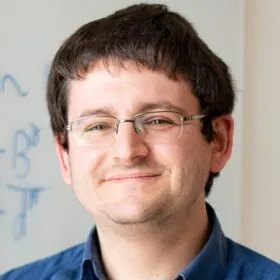
Michael Kalyuzhny
Ecology and Evolutionary Biology
Mentor: Annette Ostling

Alexander Knights
Orthopaedic Surgery
Mentor: Tristan Maerz, Kurt Hankenson, Ormond MacDougald, Jan Stegemann
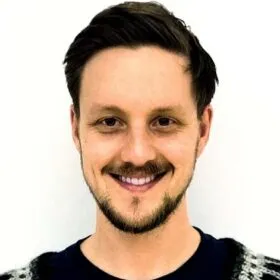
Einar Olafsson
Microbiology and Immunology
Mentor: Vernon Carruthers
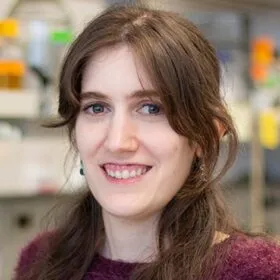
Pilar Rivero Rios
Life Sciences Institute
Mentor: Lois Weisman
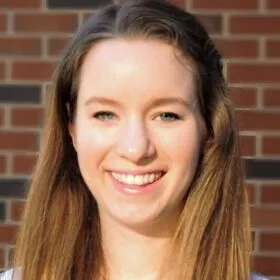
Catherine Scull
Chemistry
Mentor: Nils Walter
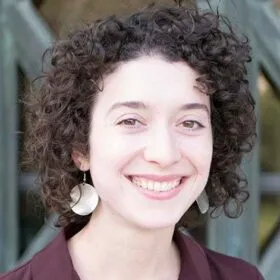
Carolyn Walsh
Molecular and Integrative Physiology
Mentor: Ormond MacDougald
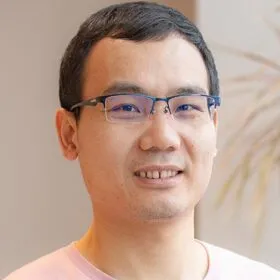
Mingmin Zhang
Life Sciences Institute
Mentor: Shawn Xu
2019
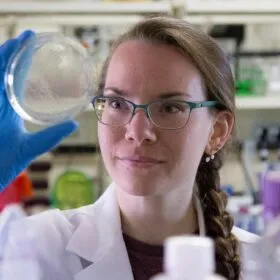
Krista Armbruster
Microbiology and Immunology
Mentor: Nicole Koropatkin
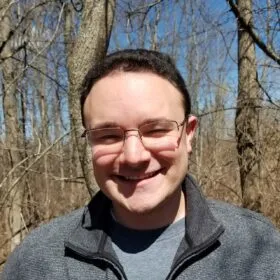
Jacob Berv
Ecology and Evolutionary Biology
Mentor: Stephen A. Smith, Matt Friedman, Dan Rabosky, Benjamin Winger
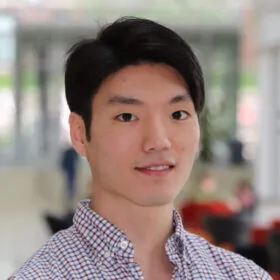
Kyoung Jo
Cell and Developmental Biology
Mentor: Idse Heemskerk
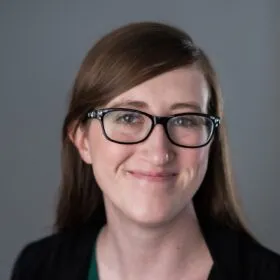
Laura Kirby
Human Genetics
Mentor: Jeff Kidd
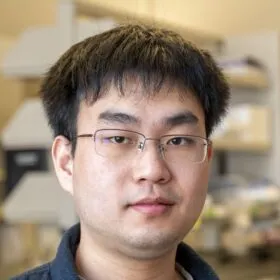
Yilai Li
Life Sciences Institute
Mentor: Michael Cianfrocco

Zeribe Nwosu
Molecular and Integrative Physiology, and Surgery
Mentor: Costas Lyssiotis, Marina Pasca di Magliano
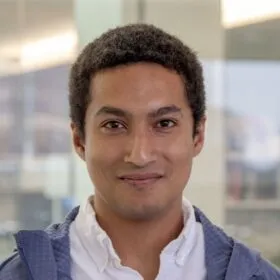
Mo Siddiq
Molecular, Cellular and Developmental Biology
Mentor: Trisha Wittkopp
2018
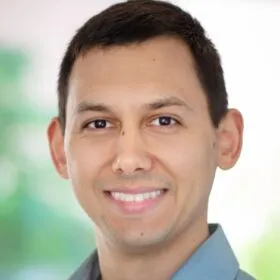
Farzan Beroz
Physics
Mentor: David Lubensky, Xiaoming Mao
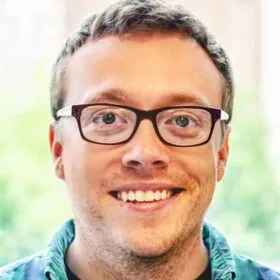
Joshua MacCready
Molecular, Cellular and Developmental Biology
Mentor: Anthony Vecchiarelli
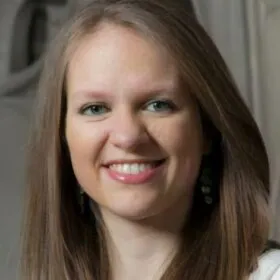
Brittany Morgan
Chemistry
Mentor: Anna Mapp
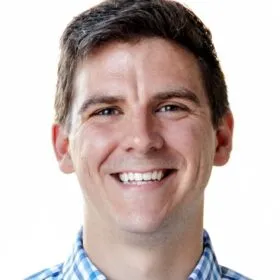
Aaron Morris
Biomedical Engineering
Mentor: Lonnie Shea
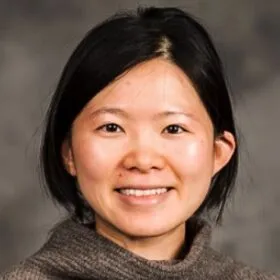
Jennifer Yeung
Pharmacology
Mentor: Gregory Tall

